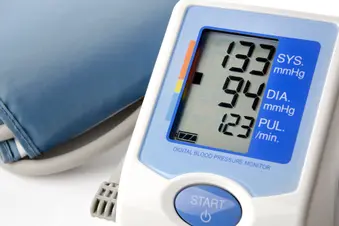
IgA nephropathy is the leading cause of kidney failure. Around half of those with IgA nephropathy will see worsening kidney function over many years. For some people, this happens more quickly. About 1 in 4 adults with IgA nephropathy end up with end-stage renal disease.
In 25% of people with IgA nephropathy, the disease continues to make small amounts of protein and blood leak into the urine, but the kidneys don't have any other damage.
Some people aren’t even aware they have it. Some even reach remission. But alongside these varied outcomes, there are other challenges to consider.
Complications of IgA Nephropathy
Because IgA affects how well your kidneys can filter your blood, it can cause problems such as:
High blood pressure. IgA builds up in your kidneys, and that buildup causes damage over time that can raise your blood pressure. Increased blood pressure also harms your kidneys, speeding up the damage to your filtering system. High blood pressure also puts a strain on your heart and the rest of the circulation, increasing your risk of heart disease.
High cholesterol. Kidney disease and cholesterol are linked. When your cholesterol goes up, so does your risk of heart attack and stroke.
Acute kidney failure. If your kidneys can’t filter your blood, waste products build up quickly and your kidneys may shut down abruptly.
Nephrotic syndrome. This set of problems happens when IgA buildup damages your glomeruli, which are the small units that filter your blood. It causes high urine protein levels, low blood protein levels, high cholesterol, and swelling of your eyelids, feet, and abdomen.
Complications of End-Stage Renal Disease
If your IgA nephropathy progresses to end-stage renal disease, you may have symptoms directly related to the improper or incomplete filtration of your blood. These include:
- Changes in how often you pee
- Nausea
- Vomiting
- Loss of appetite
- Fatigue
- Swelling
- Anemia
- Easy bleeding
- Bone, joint, and muscle pain
- Changes in blood sugar
- Nerve damage in your legs and arms
- Fluid buildup around the lungs
- High blood pressure, heart attack, and heart failure
- High potassium levels
- Higher risk of infection
- Malnutrition
- Fertility problems or miscarriage
- Restless legs syndrome
- Stroke, seizures, and dementia
- Weaker bones and higher risk of fractures
Kidney Transplant Issues
The goal of IgA nephropathy treatment is to avoid dialysis or the need for a kidney transplant. But in some cases, a transplant is the only option. It won’t cure your kidney disease, but it can treat it.
A successful transplant can be a challenge. That’s because IgA nephropathy may eventually damage the new kidney. One study found that after 10 years, IgA nephropathy came back in 19% of those who had a kidney transplant. About 4 out of 10 (40%) transplanted kidneys in people with IgA nephrology eventually fail.
Another hurdle is the lack of kidneys available in the U.S. for transplant. More than 90,000 people are waiting for kidney transplants, but only about 20,000 are performed each year.
Show Sources
Photo Credit: Grace Cary / Getty Images
SOURCES:
Cleveland Clinic: “IgA Nephropathy.”
National Health Service: “IgA Nephropathy.”
Mayo Clinic: “IgA nephropathy (Berger's disease).”
Clinical Journal of the American Society of Nephrology: “Recurrence of IgA Nephropathy after Kidney Transplantation in Adults.”
American Kidney Fund: “IgA nephropathy.”
Journal of the American Society of Nephrology: “Assessment of the Utility of Kidney Histology as a Basis for Discarding Organs in the United States: A Comparison of International Transplant Practices and Outcomes.”
Penn Medicine: “Too Many Donor Kidneys Are Discarded in U.S. Before Transplantation.”